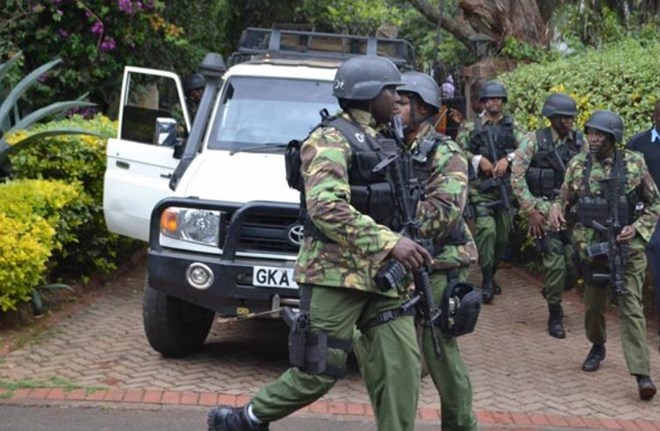
Sunday September 23, 2018

US assistance to security forces in African countries has failed to quell political violence on the part of insurgents or terrorists, a think tank has concluded in pair of new studies.
The analyses conducted for the US Defence Department and the US Africa Command reveals that multi-billion-dollar efforts during the past 25 years to train national security forces in Africa have been “highly inefficient.”
During the Cold War era, US military aid to African countries appears to have actually worsened conflicts, the assessment adds.
But when provided in conjunction with United Nations peacekeeping operations, US military aid “has had a significant impact on the incidence of political violence,” adds the assessment carried out by the California-based Rand Corporation.
RARE EXAMPLE
The studies do not examine specific conflicts, but Kenya is cited in one of the analyses as a seemingly rare example of an African country whose security forces have performed more effectively as a result of US assistance.
“The Kenyan security units that have worked closest with US officials have demonstrated their capacity for counterterrorism, including in challenging contexts,” this evaluation finds. Kenyan troops that received US training “performed well in Amisom operations — for example, successfully retaking territory from Al-Shabaab,” the Rand study team adds.
In addition to supporting KDF contingents deployed in Somalia, the US has focused on enhancing the capacity of Kenyan police, including through the creation of specialised anti-terrorism units, this country-specific report notes.
RECCE SQUAD
US assistance has also been directed to institutional police reforms following the 2007-2008 “outbreak of communal violence in which the police were heavily implicated,” the study says.
“Similarly,” the study adds, “the elite paramilitary police General Services Unit, which has received substantial US support, performed more competently than other units responding to the Westgate Mall attack in 2013, although the overall security forces’ response was plagued by ‘significant shortcomings’.”
Kenyan police forces became “less politicised and more professional” due in part to US assistance from 2008 to 2013, “resulting in better performance in the 2013 elections,” the Rand assessment states.
“Also, some evidence suggests that, following US training, the Anti-Terrorism Police Unit is carrying out fewer extrajudicial killings, collecting better evidence, and making more arrests than in the past.”
SHORTCOMINGS
The study acknowledges, however, that there are continuing reports of human rights abuses by this and other Kenyan security units.
Moreover, the country’s current leadership “appears to be backsliding on some of the reforms made since 2008.”
Stephen Watts, an author of both Rand studies, tempered the positive appraisal of KDF operations in Somalia following a query from the Nation.
An email message to Mr Watts pointed to UN reports of KDF responsibility for the deaths of several Somali civilians.
The message also recalled findings by UN experts in 2016 that some KDF troops stationed in or near Kismayo were collaborating with Al-Shabaab in circumventing the international embargo on charcoal exports from Somalia.
“We should have been a little more precise in the wording of our judgment of Kenya’s performance in Somalia,” Mr Watts replied.
“We were arguing that there is evidence to suggest that Kenyan forces demonstrated improvements in their operational capabilities, and some of the units that seemed particularly capable were those that cooperated most closely with US trainers and advisers.”